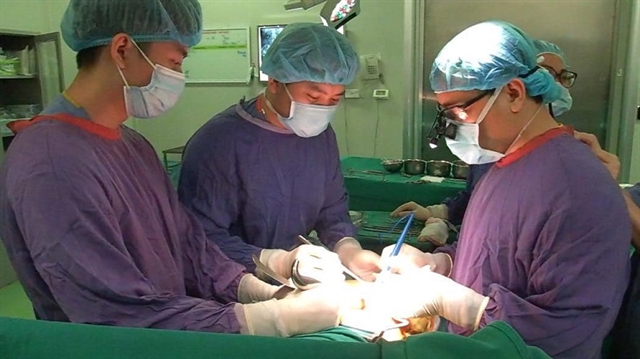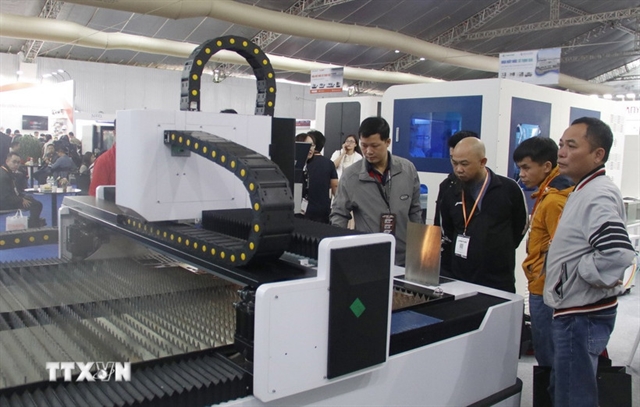 Society
Society


|
| Doctors at Việt Đức Hospital perform the 1,000th kidney transplant. — Photo nhandan.com.vn |
HÀ NỘI — Doctors at Việt Đức (Việt Nam - Germany) Friendship Hospital have reached a new milestone as they performed the 1,000th successful kidney transplant at the hospital, an official from the hospital has confirmed.
The Hà Nội-based facility announced that its medical staff replaced a kidney in the 1,000th kidney transplant for a 49-year-old man on September 28.
Associate Professor, Dr Nguyễn Quang Nghĩa, Director of the hospital’s Organ Transplant Centre, said the patient from Hà Nội had end-stage chronic kidney disease in January, forcing him to undergo haemodialysis three times a week at the hospital.
If no kidney transplant was performed, the patient would have had to undergo lifelong dialysis, with the increased risk affecting his heart function, as well as of infection and musculoskeletal diseases. In addition, long-term haemodialysis would have had negative economic effects on the patient, according to Nghĩa.
Due to the high cost of kidney-replacing treatments, such therapy is mainly applied to patients in developed countries. Many patients who do not receive a kidney transplant die due to the complications of end-stage kidney failure.
On September 28, the patient had a kidney transplant from a living donor. This was the 1,000th kidney transplant performed at Việt Đức Hospital. The transplant was a success and took three hours.
Ten days after his surgery, the patient's health was completely stable, as he awoke with normal activities resuming and was thereafter discharged from hospital.
According to Nghĩa, the first kidney transplant at the hospital was conducted in 2002. Among these kinds of transplants carried out at the hospital, there have been 122 from brain-dead donors, accounting for 12 per cent, with the remaining 88 per cent from living donors.
Dr Ninh Việt Khải, Deputy Director of the Organ Transplant Centre at the hospital, added that brain-dead donors could donate two kidneys at the same time and also could donate many other organs to bring new life to other patients.
According to the doctor the techniques used in a kidney transplant from brain-dead donors have more advantages than those involved in transplants from living donors because when taking organs from living donors, doctors must ensure their safety. Surgeries on healthy persons require organ removals to be completely accurate to avoid any complications.
While taking organs from brain-dead donors, doctors can get longer blood vessels than from living donors, thus facilitating follow-up transplants.
For living donors, only shorter blood vessels can be obtained, so for a favourable transplant, doctors must apply other options, such as switching other blood vessels for kidney transplants, as well as forming enlarged vessels for the kidneys using genital veins or artery segments preserved from the tissue bank.
Thanks to technical improvements, Việt Đức Hospital has conducted complete endoscopies to take organs from living donors, helping reduce postoperative pain, while ensuring aesthetic factors, quicker recovery and a shortened hospital stay for donors.
The hospital has also performed many special kidney transplants such as a kidney autotransplant to save an anaemic kidney on July 20 for a patient, who had their kidney artery blocked for up to 24 hours due to a motorbike accident.
The hospital has transferred its technology to many provincial hospitals.
Currently, the survival rate after five years of kidney transplantation is 95-98 per cent.
The patient said: “I am very grateful to the doctors at Việt Đức Hospital. I hope that more patients will be saved like me." — VNS




